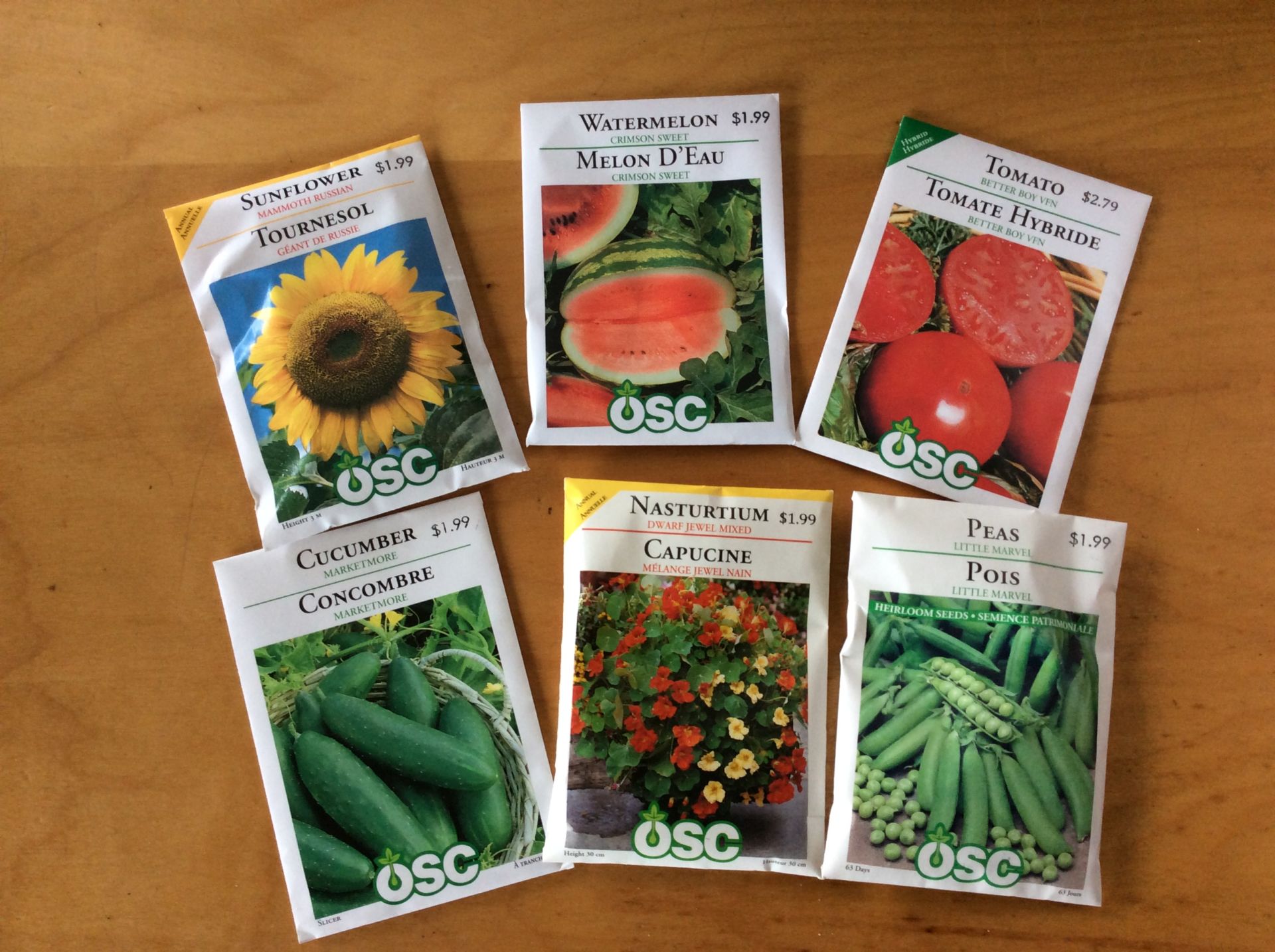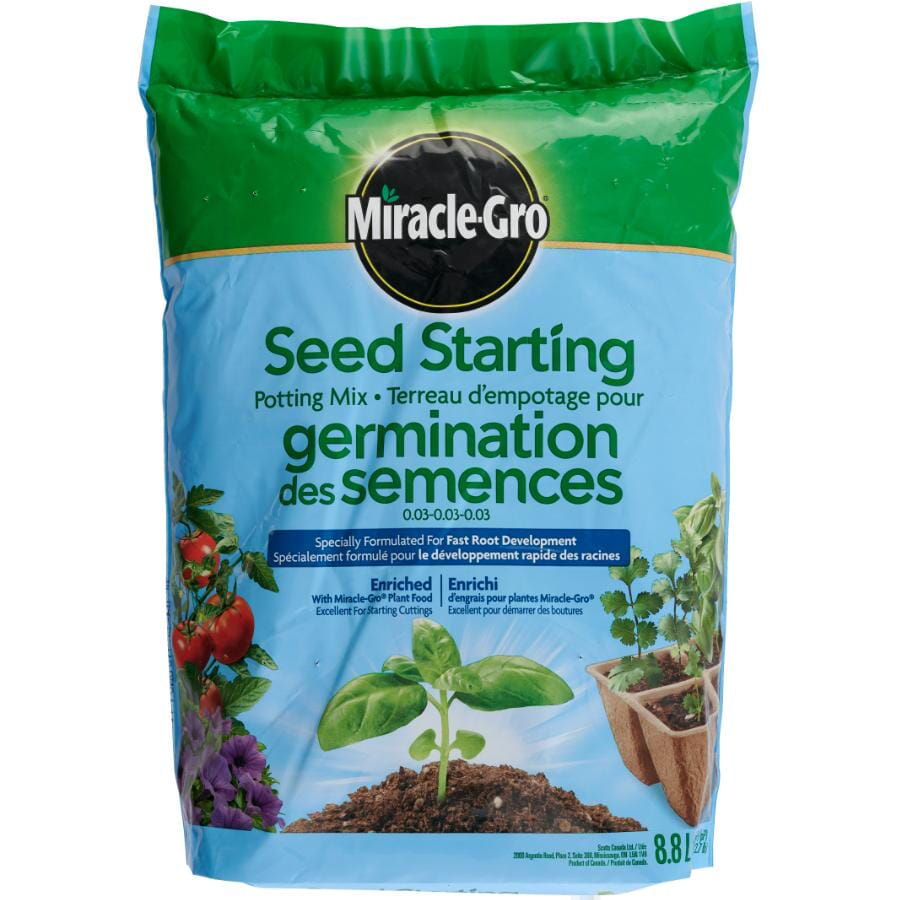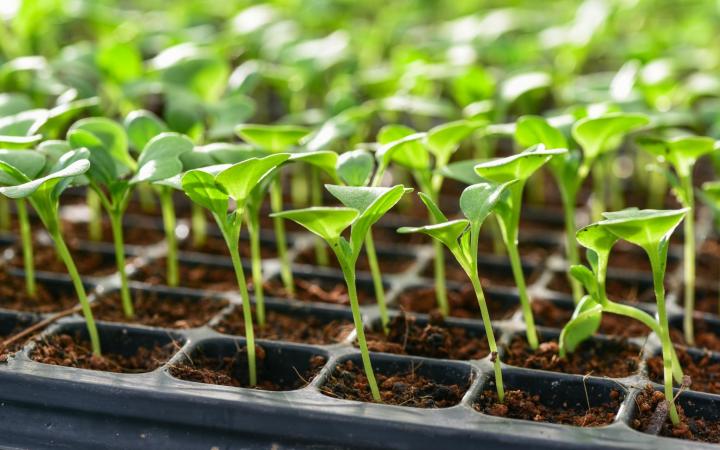Our Seed packets are here!
… there are very few seeds which are required to be planted as early as late March – and those that are, can wait to be seeded until the 1st week of April. When looking at the seed packets for planting instructions, you would work the weeks backwards from when the last frost is expected – this will allow you to know when to start seeding . To give you a little help we have determined that there is the possibility of a frost most years in mid to late May, so we tend to use the long weekend in May as a guideline for an end of frost date to work the weeks backwards from.
Once you’ve decided to try your hand at starting your own seeds, it’s time to think about whether to start them indoors or outdoors. There are many benefits to starting seeds indoors rather than waiting to sow them outdoors. The main reason is to get an early start on the gardening season, but that’s not the only consideration:
- In colder climates with short growing seasons, starting seeds indoors allows you to gain a few precious weeks of growing time, which can really make a difference when frost looms in the fall. Slow-growing crops such as tomatoes may not even have enough time to reach maturity if they are started outdoors.
- Not all seeds should be started indoors. In fact, most vegetables will grow perfectly well when started outdoors and some even prefer not to be moved or transplanted. Ultimately, it’s important to consider how each type of vegetable grows. Crops that are best started indoors include broccoli, brussels sprouts, cabbage, lettuce, and tomatoes. Those with a slower root development, like cauliflower, celery, eggplant, and peppers, should also be started indoors.
- Tender vegetables like tomatoes, eggplants, and peppers are very susceptible to the cold temperatures of spring, so it’s best to start them indoors and keep them safe from unpredictable weather, and plant them outdoors when the chance of frost is gone and the soil is warm.
- Some plants truly resist transplanting. For example, root vegetables like carrots and beets don’t like having their roots disturbed, so it’s usually safer to just start their seeds outdoors in the ground rather than transplant them later on.


TIPS BEFORE YOU START SEEDS INDOORS
- Be seed-savvy – Check different seed companies to see which ones supply the best quality seeds and where to buy them locally.
- Make a list of what you’d like to grow – A good rule-of-thumb is to imagine your garden one-quarter the size that it really is. This allows for good spacing practices!
- Prepare for some losses – Though it’s good not to plant too much for your garden space, it’s also good to assume that some of your seeds won’t germinate, or that they will possibly die off later. Plant a few extra, just in case.
- Consider a grow light if you start your seeds in late winter – Most veggies need between 6 to 8 hours of direct sunlight (minimum), so it’s important to have either a grow light or a south facing window that allows plenty of light if you are sowing your seeds indoors in late winter.
- Use clean containers – Most seed catalogs offer seedling flats, peat pots, and other growing containers, but egg cartons make good containers for the earliest stages of seed starting, too. Be sure to poke holes in the sides near the bottom of the containers you use in order to allow excess water to drain. Keep in mind that you might need to transplant your seedlings into larger containers at some point before moving them into the garden.
- Label your containers now! – While you may have good intentions on remembering what you planted and where, there’s nothing more frustrating than forgetting, especially when you are testing out different varieties of the same plant.
- Seeds sprout best – at temperatures of 65 to 75°F (18-24°C). Don’t let it get too cold.
- Rotate your seedlings – If you keep your seedlings next to a window, remember to rotate the containers every so often to keep the seedlings growing evenly. If you’re using a grow light, remember to raise it a few inches above the tallest seedling every couple of days.
At Thuss Greenhouses we carry OSC seeds which are a Canadian company with over 125 years of experience offering quality seeds at competitive pricing for our customers. 🙂

